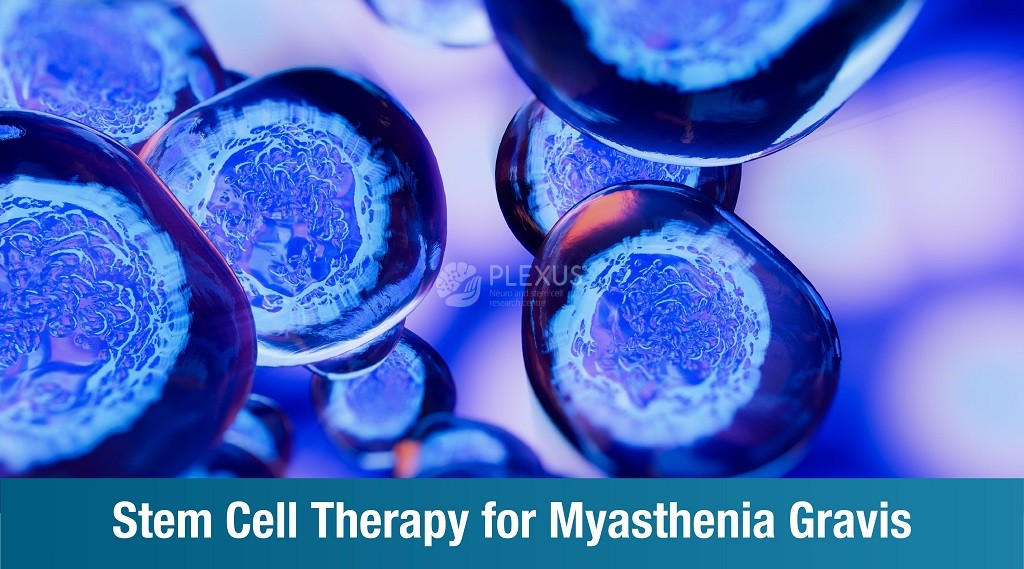
The first time many Indians heard of myasthenia gravis was when Amitabh Bachchan was diagnosed with it in the 1980s. A disease that causes the immune system to disrupt the communication between the nerves and muscles, myasthenia gravis can affect people of any age. However, women younger than 40 years are at greater risk than men older than 60 years.
Through this article, we’ll take a closer look at the condition and how hematopoietic stem cell therapy has offered patients of myasthenia gravis better lives.
What is myasthenia gravis?
Myasthenia gravis (MG) is an autoimmune condition that affects 20 out of every 100,000 people. It impacts the individual’s ability to control muscles voluntarily. A lifelong neuromuscular disease, MG can lead to incredible weakness in the muscles.
In a healthy individual, the nerves signal the muscles to work in a cohesive and effortless manner. However, in a patient with MG the immune system ends malfunctioning by releasing antibodies that destroy receptor sites and impede communication between nerve and muscle cells.
Symptoms of myasthenia gravis
While muscle weakness is one the most common symptoms of MG, it can be fleeting. However, as the disease advances, the symptoms get progressively worse. Below are the symptoms of MG:
- Drooping eyelids, also known ptosis
- Speech trouble
- Dysphagia
- Double vision
- Limb weakness
- Inability to hold neck up
Causes of myasthenia gravis
The causes of MG are:
- Presence of protein blocking antibodies
- Enlarged thymus gland
- Tumor in thymus gland
- Family history (mothers with MG may give birth to children with MG)
This type of MG is called neonatal MG. Timely diagnosis and intervention can help children recover within 2-3 months after birth.
Risk factors of myasthenia gravis
The chances of developing MG get exacerbated in the presence of the following risks:
- Medication, typically beta blockers, anesthetics, antibiotics
- Pregnancy
- Menstruation
- Fatigue
- Surgery
- Illness
- Infection
- Stress
What are hematopoietic stem cells?
Hematopoietic stem cells (HSCs) are found in the bone marrow. They can differentiate into cells found in the immune system, and any type of blood cell – white blood cells, red blood cells, and platelets. Their primary function is to maintain the production of blood for as long as we live. HSCs are also used in bone marrow transplants. HSCs from cord blood have been known to cause fewer immune rejections (like graft-versus-host disease), unlike HSCs procured from bone marrow.
Application of HSCs in myasthenia gravis
In the past, medical intervention for MG involved anticholinesterase drugs, immunotherapeutic agents, and other medication typically prescribed for autoimmune conditions.
The first instance of hematopoietic stem cell therapy (HSCT) for a patient with MG was in the year 2001. With chemotherapy, the doctors completely wiped out the immune system. Post this cultured HSCs are injected into the patient. These injected HSCs eventually help grow back a healthy and properly functioning immune system that does not release antibodies to disrupt nerve-muscle communication.
Unfortunately, there isn’t enough research to help us understand the exact success rate of HSCT for MG. Worldover, there have been only a handful of patients who have received such interventions.
Applications MSCs in myasthenia gravis
Although HSCT has achieved positive results and improved the lives of patients with MG, its associated risks and side-effects are too much. Chemotherapy and radiation may not be the best course for many patients with other comorbidities. This is where mesenchymal stem cell therapy comes in.
Mesenchymal adult stem cells (MSCs) are stromal cells with anti-inflammatory, immunomodulatory, self-renewal, cell-division, signaling, and multilineage differentiation properties. They can divide and develop into multiple specialised cell types in specific organs and/or tissue.
The multipotent nature of MSCs make them the ideal choice for improving the lives of patients with a variety of neurological disorders. In the case of a neuromuscular autoimmune condition like MG, injected MSCs can repair/replace nerve and muscle cells that have been damaged by protein-blocking antibodies, improve immune function, and manage other symptoms.
Plexus Regenerative Rehabilitation
As India’s best stem cell therapy centre, Plexus uses autologous mesenchymal stem cells taken from the patient’s own body. The administration of MSCs in patients with MG has positively impacted the patient’s quality of life. The immunomodulatory, tissue-protective and repair-promoting properties of MSCs make stem cell therapy a great alternative to traditional prescription-based treatment for myasthenia gravis.
To know more about our customised regenerative rehabilitation for myasthenia gravis, please reach out to us today.
WhatsApp +91 89048 42087
Call +91 78159 64668 (Hyderabad) | +91 82299 99888 (Bangalore)
FAQs
Can stem cells cure myasthenia gravis?
Stem cell therapy can improve the quality of patients with myasthenia gravis by helping them manage their symptoms. Presently, there is no sure shot cure for myasthenia gravis.
Can you lead a normal life with MG?
Myasthenia gravis is a lifelong condition. Having said that, if there is proper and timely diagnosis and intervention, the patient can lead a quality life. As long as the patient does not experience severe chewing and swallowing troubles, respiratory issues, etc. they can lead a normal life.
What is the most effective treatment for myasthenia gravis?
Traditional medication like pyridostigmine helps improve communication between nerve and muscle, and also reduces muscle weakness. This is the most commonly prescribed and effective traditional course. However, stem cell therapy, particularly mesenchymal stem cell therapy is gaining grounds for its effective and risk-free approach.
What are the 3 risk factors that can make myasthenia gravis worse?
Fatigue, illness, and surgery are the 3 major risk factors that can make myasthenia gravis worse.










